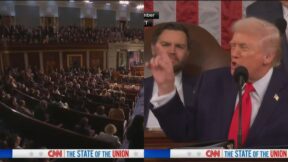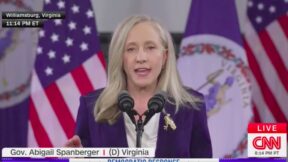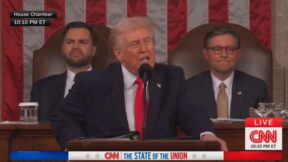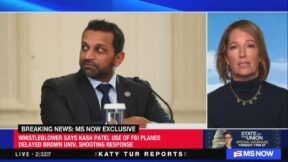Brit Hume ‘Corrects’ Bill O’Reilly on ‘Kind of Popular’ Public Option
 What the Fox? On last night’s Countdown, Keith Olbermann noted the shocking development that Brit Hume corrected Bill O’Reilly’s contention that “the folks” don’t want a public health insurance option, noting that polling suggests it’s “kind of popular.”
What the Fox? On last night’s Countdown, Keith Olbermann noted the shocking development that Brit Hume corrected Bill O’Reilly’s contention that “the folks” don’t want a public health insurance option, noting that polling suggests it’s “kind of popular.”
Hume’s correction needs correcting. The public option isn’t “kind of popular,” it’s overwhelmingly popular (even with “folks” like Bill O’Reilly).
Here’s the exchange between Hume and O’Reilly:
Hume correctly notes that it depends on how the question is asked:
O’REILLY: They call it, you know, the public sector. What is the –
HUME: Public option, you mean?
O’REILLY: Public option, whatever. The folks don’t want it. … But it looks to me like they have maybe 55 votes to pass it. And that means they could be filibustered and never come up for a vote.
HUME: That’s what it looks like right now. The public option, actually some polls show that the public option standing by itself is not at all unpopular, but it is kind of popular. But that depends on how the poll question is raised. … We don’t need to go into all that right now.
Well, I think we do need to go into that right now. In the most recent (of many) polls to show 70+ percent approval for the public option, they asked the question 2 ways. Half of the respondents were asked this way:
In any health care proposal, how important do you feel it is to give people a choice of both a public plan administered by the federal government and a private plan for their health insurance––extremely important, quite important, not that important, or not at all important?
72% of those people favored the public option. The other half of respondents were asked this:
Would you favor or oppose creating a public health care plan administered by the federal government that would compete directly with private health insurance companies?
The result there was 48% favored, 42% opposed, and 10% not sure. The public option still wins here, but why the huge difference? The second question does highlight the fact that the public plan would compete with private insurance companies, but I don’t see a third of people changing their minds to protect insurance companies.
No, the main difference is that they omit the word “choice” from the second question. This plays into the conservative canard that somehow a public plan will drive insurance companies out of business, a contention that the CBO says is false. Conversely, letting people know that the public option provides them with a choice is not exactly push-polling.
When phrased correctly, support for the public option has consistently been in the mid-to-high 70’s, and as high as 79%. That’s not “kinda popular,” that’s near unanimous. More people support the public option than believe in Jesus.
Hume isn’t alone in downplaying the public option’s popularity. We have reported, on more than one occasion, consistent attempts by the media to celebrate the death of the public option, despite evidence to the contrary. Mainstream media personalities have consistently framed support for the public option as a “liberal base” issue. The standard trick all along has been to talk about the public option, but then cite polls that deal with the reform effort as a whole, or to quote the much lower outlier polls with the questionable phrasing. As Jason Linkins points out, the public option has been so popular for so long, the media can no longer ignore it.
Hume does crystallize the fate of the public option nicely, though. On the one hand, you’ve got most of the American people supporting the public option. On the other, Joe Lieberman and Olympia Snowe.
This is an opinion piece. The views expressed in this article are those of just the author.
New: The Mediaite One-Sheet "Newsletter of Newsletters"
Your daily summary and analysis of what the many, many media newsletters are saying and reporting. Subscribe now!






Comments
↓ Scroll down for comments ↓